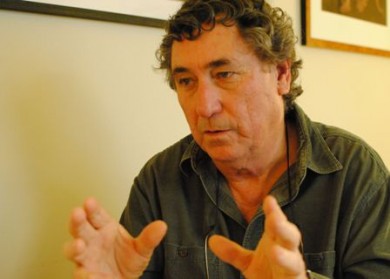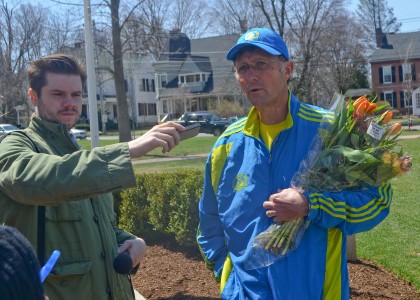Tag: Journalism
Nonprofit newsrooms struggle with long-term funding, Pew study finds
Finding long-term, sustainable funding remains a top concern of the country’s nonprofit news outlets, according to the results of a new study ...APM series examines exoneration in the U.S.
“After Innocence: Exoneration in America” provides an in-depth look at wrongful imprisonment in the U.S.Wisconsin lawmakers seek to hobble nonprofit investigative journalism center
Republicans in Wisconsin’s state legislature are looking to bar the state’s public broadcasters and biggest university from contributing to an investigative-journalism center ...WYSO explores industrial city’s reinvention
The recession in Dayton provides the backdrop for ReInvention Stories, a multimedia Localore project that brought together the Association of Independents in ...NPR’s Code Switch digs into racial discomfort
When Southern country singer Brad Paisley shared his awkward view of race relations in his controversial song “Accidental Racist” last month, the ...Stations continue StateImpact without NPR
NPR provided training and support to 17 participating stations, but has dropped plans to expand StateImpact to all 50 states.Unscathed by tornado, Oklahoma pubcasters band together to report, assist with relief
Oklahoma has a small but tight-knit pubcasting community, so covering the massive May 20 tornado and its aftermath required everyone on the ...WBUR’s crisis coverage reveals potential of ‘on-air and online’ news
For more than a decade, pubcasters have debated whether local stations can harness the power of the Internet. There has been no ...Center for Investigative Reporting to streamline operations, publish fewer stories
The Center for Investigative Reporting will fold its three different brands under one roof beginning May 29. The CIR moniker will now ...“If you can’t make it important, it’s probably not worth doing”
In an extended interview with Current, Frontline creator David Fanning recalls how he came to work at Boston’s WGBH more than three decades ago, ...University of Kentucky sues WUKY reporter over open records request
The University of Kentucky has sued a reporter at its public radio station, WUKY in Lexington, in an attempt to guard information ...NPR, WLRN team up to expand reporting on Latin America
NPR and Miami’s WLRN are collaborating to boost coverage of Latin America, with NPR’s Lourdes Garcia-Navarro assigned to a new foreign desk ...Live from Boston: A marathon of coverage
Edgar B. Herwick III, a features reporter for WGBH, was enjoying his field assignment on that cool, sunny Monday, interviewing runners as ...PRI launches crowdfunding campaign to fund global stories, entice new donors
A crowdfunding campaign launched April 15 by Public Radio International seeks $25,000 for a “Global Stories Fund” that will support 11 international ...WGBH’s Greater Boston goes nationwide on World Channel with bombing coverage
Tonight’s special edition of Greater Boston from WGBH, focused on the shocking bomb blasts at Monday’s Boston Marathon, will be distributed nationally on the ...








